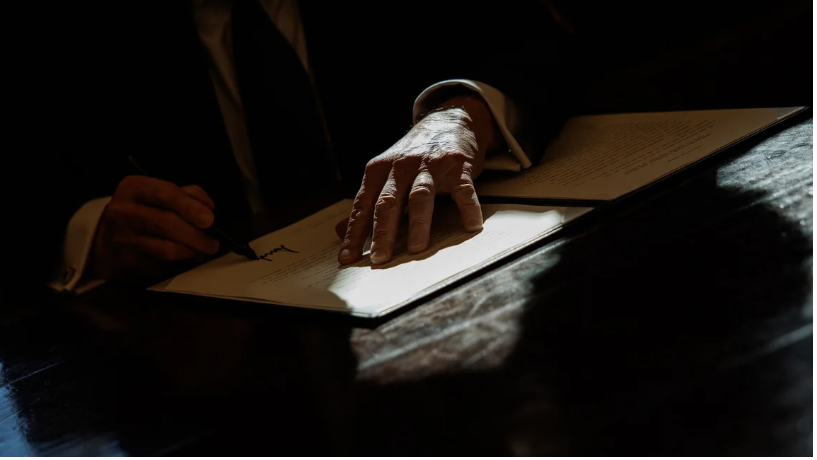
America’s nearly five-year economic boom is starting to show its age.
Cracks are forming in the economy’s foundation: Layoffs are mounting, hiring is slowing, consumer confidence is eroding and inflation is picking up speed. Although all of those things would almost certainly be happening if former Vice President Kamala Harris had won the election, the uncertainty that President Donald Trump’s economic policy has unleashed is exacerbating those problems.
Tariffs — particularly the on-again, off-again nature of Trump’s dictates — are sowing confusion for businesses, consumers and investors alike, and they’re stoking concerns about inflation at a time when consumer prices have been stubbornly on the rise again.

Trump’s immigration crackdown threatens key industries, including agriculture, construction and health care, which have been struggling to hire. And steep cuts to federal workers and government aid could hurt the most vulnerable Americans who are least insulated from price hikes.
“Federal government job losses could be larger than expected, and laid-off workers could pull back on their spending, leading to slower job growth in other industries,” said Gus Faucher, chief economist at PNC, in a note to investors Friday. “Uncertainty about the outlook for tariffs could lead businesses to slow their hiring. And restrictions on immigration could limit the supply of labor available, weighing on employment gains over the next few years.”
Trump has delayed the bulk of his most severe tariff threats after discussions with business leaders who decried the tariffs as unfairly destructive to their bottom lines and the broader economy. But they are set to go into effect in full force April 2.

Trump’s policy poses real risks for the strong, yet wobbling, economy he inherited.
Trump himself acknowledged in his joint address to Congress last week and in the Oval Office Friday that tariffs will cause “a little disturbance.” In an interview with Fox News Sunday, Trump declined to rule out a recession, saying his economic plan could be painful for some at first.
“I hate to predict things like that,” Trump said. “There is a period of transition because what we’re doing is very big.”
Stock markets were set to sink again Monday on Trump’s comments: The Dow was set to fall 370 points or 0.9% at the open. The broader S&P 500 was on pace to fall 1% and the Nasdaq was 1.2% lower in premarket trading.
Stocks have reacted negatively to tariffs in particular, with the Nasdaq hovering around correction territory and the S&P 500 down about 3% since Trump took office. Stocks are not the same as the economy — but Trump and many consumers often tout the market is if it were an indicator of strength. While he’s been noticeably quiet about stocks lately, during his first term Trump routinely tweeted about markets records as a sign of America’s economic prowess.
But economic data lately has shown more than just a little disturbance.